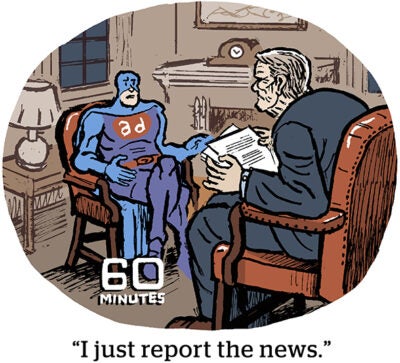Here’s today’s AdExchanger.com news round-up… Want it by email? Sign up here.
There’s An App For That
Mobile apps earned $190 billion in ad revenue in 2019 and are forecast to surpass $240 billion this year, according to App Annie’s annual report. App stores made $120 billion from in-app and app download payments, with 72% coming from gaming apps and half of all spending originating in China. TikTok in particular had a standout year, with 14.5 billion hours of time spent in app and audience growth of 200% in Q4 2019 alone. But the app is still a bigger force in China, which accounts for 90% of its time spent. Non-gaming apps are growing as well, especially in the entertainment sector with the launch of new streaming services, Bloomberg reports. Apple’s app store brought in 79% of revenue while Google’s Android netted 21%, with a majority coming from subscription apps like Netflix and Tinder. Overall, the use of mobile apps doubled between 2017 and 2019. More.
Streaming Dreams
NBCUniversal has been quiet about its plans for Peacock, the soon-to-launch streaming video offering. The service will be mostly ad-supported and is free for Comcast subscribers, as well as potentially other cable owners (cord-havers?). NBCU is also playing it relatively safe on programming expenditures, with a $2 billion total budget for Peacock’s first two years. By contrast, Disney Plus will spend $2.5 billion and Netflix will spend $13 billion on just the next year’s programming alone, not including other mountainous line items like marketing and operations. And unlike Disney, which packed everything it could into Disney Plus, NBCU has been careful to reserve new and prime-time programming for its networks. “NBCU Chairman Steve Burke has told people close to him that he doesn’t see how Disney is going to make money from Disney Plus,” The Information reports. More.
Give Data To Get Data
California’s new privacy law gives residents the right to request all the data a company has on them. But the cost to obtain that data is … more data. For instance, companies that verify data requests ask consumers to send photos of their licenses or approved IDs, as well as taking multiple pictures with responses to prompts such as “look happier” (showing they’re actual people, not a faked image or video). But there’s good reason for the added security, The New York Times reports. Europe’s GDPR law has been taken advantage of by hackers who used personal data requests from subscription companies such as Spotify to obtain home addresses and credit card information. “Regulators need to think more about the unintended consequences of empowering individuals to access and delete their data,” said Steve Kirkham, who worked on Airbnb’s trust and safety team before founding the identity verification company Berbix. “A lot of people don’t want to give more information,” he said. “Their assumption is that you will do something nefarious with it.” More.
But Wait, There’s More
- Cable Companies Are Wooing People Back With Free Streaming – NBC News
- Verizon Launches Privacy-Focused Search Engine Powered By Microsoft – MediaPost
- Twitter Suspends Grindr From Ad Platform As It Investigates Privacy Concerns – Ad Age
- Customer Data Platform ActionIQ Raises $32M – release
- The 11 Execs Leading The Charge On Walmart’s Ad Business – Business Insider
- DCA Report: Unlocking the Door To Actionable Data-Driven Enterprise Insights – release
- Criteo Stock Crashes After Google Announces Chrome Cookie Change – CNBC
- Ever Wonder About Shen Yun Ads? 62% Of Revenue Goes To Marketing – SF Chronicle
- GumGum Officially Releases Contextual Analysis Solution For Digital Publishers – release
You’re Hired














